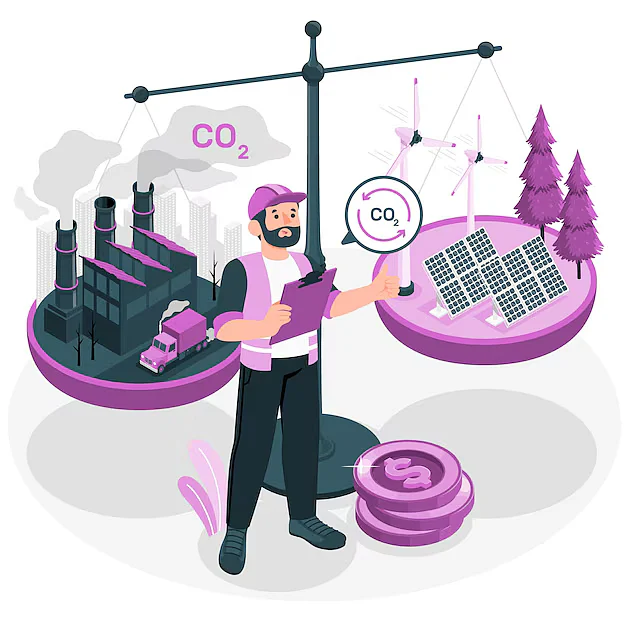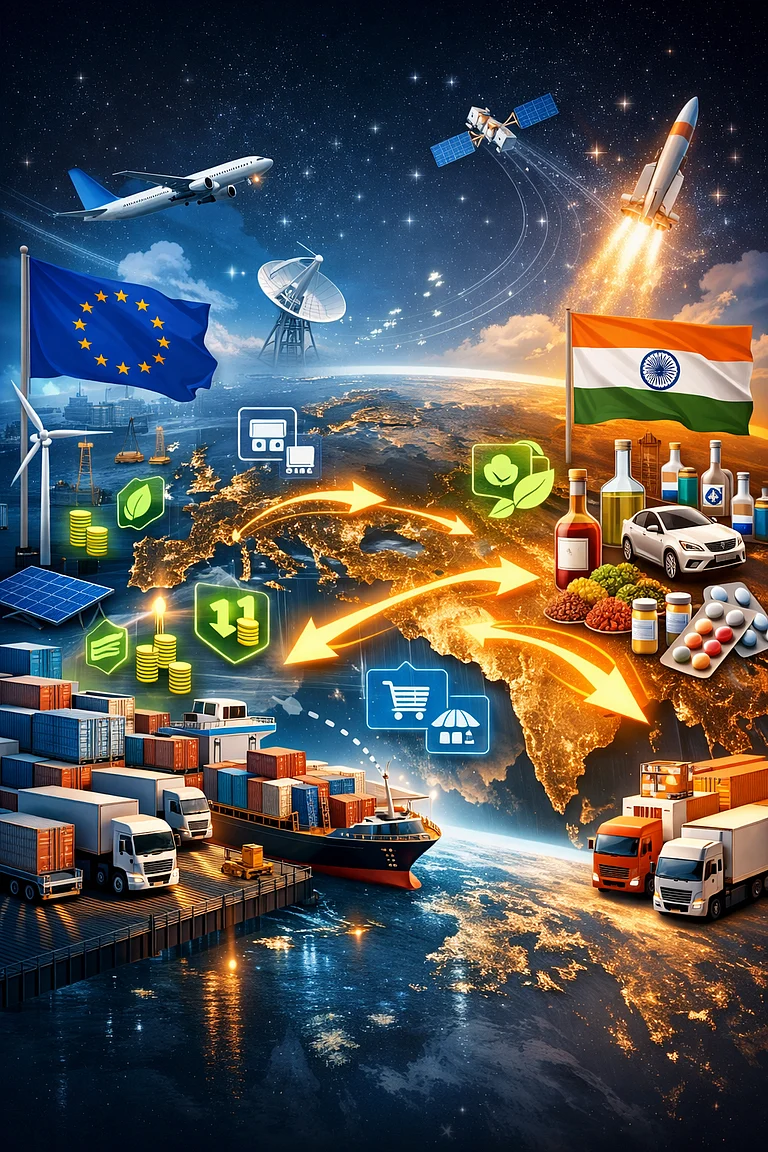Finance minister Nirmala Sitharaman commented about the European Union’s (EU) Carbon Border Adjustment Mechanism (CBAM) tax in an interview with Financial Times at the energy transition summit in New Delhi, saying that it is ‘unilateral’ and ‘arbitrary’ which can hurt Indian industries and their exports.
CBAM is a carbon tax that is imposed on carbon-intensive products like iron, steel, cement, fertilisers, and certain types of electricity that is imported into the EU.
According to the European Union, CBAM is a tool to put a fair price on the emissions of carbon during the production of certain carbon-intensive goods that enter the EU, which is to be imposed from 1 January 2026.
The minister said that CBAM is a trade barrier that may be justified by the World Trade Organisation (WTO) on grounds of being green. While speaking with the Financial Times about free trade agreements (FTAs), she clarified that CBAM will not escalate to the point where it can affect FTA negotiations.
During the trial period of CBAM from October 1, 2023, companies from seven carbon-intensive sectors, including iron, steel, cement, fertiliser, aluminium, and hydrocarbon products, have to share their emissions data with the EU.
A report titled 'The Global South’s Response To A Changing Trade Regime In The Era of Climate Change Carbon Border Adjustment Mechanism (CBAM)' published in July 2024, highlights that CBAM could result in an additional 25 per cent tax on carbon-intensive goods exported by India to the EU.
India relies on coal for more than 50 per cent of its electricity generation, which directly powers most of its production of goods such as iron and steel.
Sitharaman also said that India was on track to become a net zero carbon emitter country by 2070 but now it is facing some external challenges, such as EU carbon tax and deforestation initiatives.































